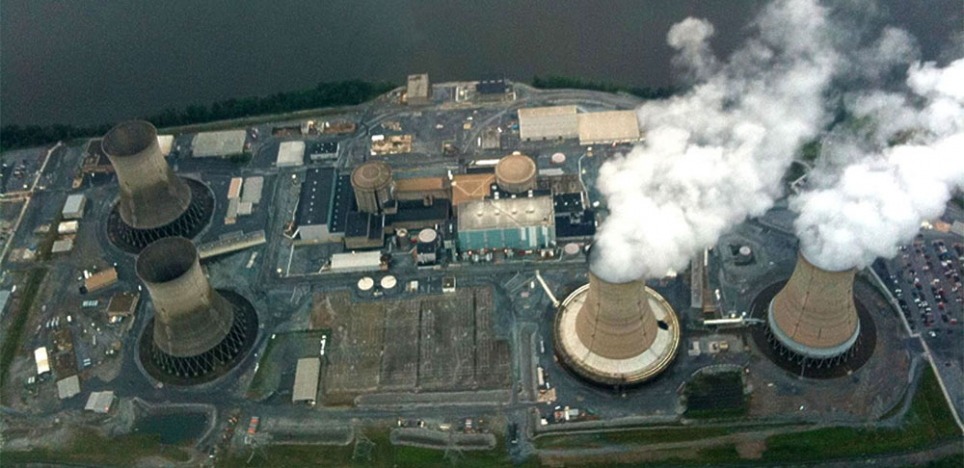Albert Einstein was right. The power of the atom has changed everything. Ever since the United States chose to use atom bombs against two Japanese cities in August 1945, the world has been held hostage to these deadly weapons. Not to be left out of the arms race, other nations are determined to develop their own nuclear capabilities.
Since the Eisenhower administration's "Atoms for Peace" program, alternative options for nuclear technology have been promoted, but the sunny prospect of using the atom to create safe, cheap, and clean energy has been clouded by controversy. Meanwhile, nuclear waste, the potential danger of infiltration by terrorists, and the high cost of building and regulating these nuclear facilities demands much more discussion.
Three Mile Island is a nuclear power plant located in south central Pennsylvania. In the early 1970s, Metropolitan Edison built two reactors there for commercial energy production.
On March 28, 1979, a batch of human errors and technological mistakes took place resulting in the accidental release of radioactive water and gasses into the air. More than 140,000 people fled the scene in their cars. Panic spread through reports by the press. The seriousness of the situation was further heightened by visits to the hobbled plant by President Jimmy Carter and the Governor of Pennsylvania.
Three Mile Island was the worst civilian nuclear power plant accident in U.S. history. This much-publicized accident chilled public support for the construction of more nuclear power plants. It is estimated that cleanup of the plant cost about $970 million.
One of the most unusual events took place just 12 days before the Three Mile Island disaster: The China Syndrome, a fictional movie about the cover-up of a nuclear plant accident, opened nationally. As a result, many citizens had the chance to clarify their values about nuclear power plants, their regular maintenance and safety, the effects radiation can have on human beings, and the environmental consequences of nuclear energy on nearby communities in accidents.
Note: The China Syndrome is available on AmazonPrime, iTunes, and other outlets.
To Name This Day . . .
 Family or Small Group Discussion
Family or Small Group Discussion
- If you have seen The China Syndrome already, try to recall your reaction to it. Did it convince you to change your views on nuclear energy or not? Give a reason for your answer.
- What are your ethical responses to this thriller's portrait of corporate officials not putting public safety above economic considerations?
- Measure the moral depth to this thought by Albert Einstein:
"The unleashed power of the atom has changed everything, save our modes of thinking, and thus we drift toward unparalleled disaster."
